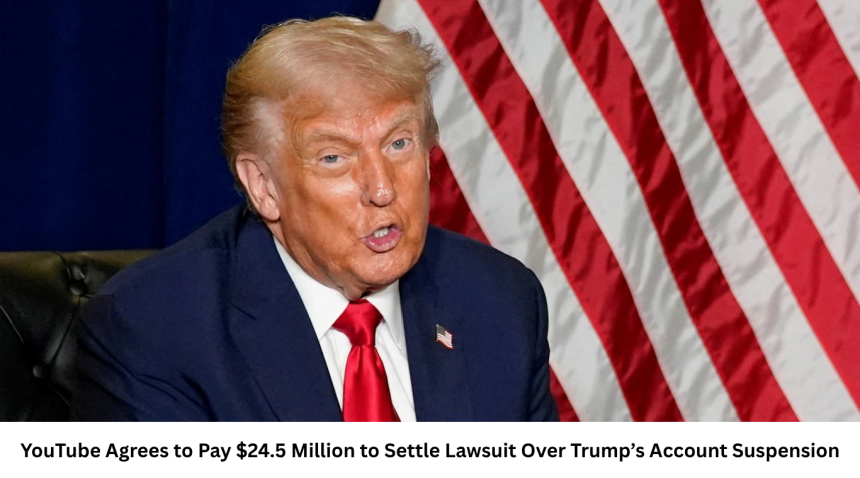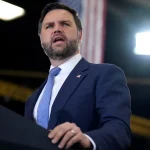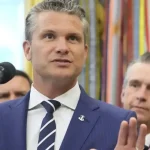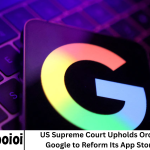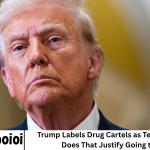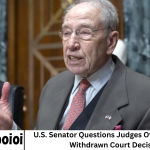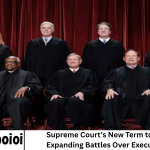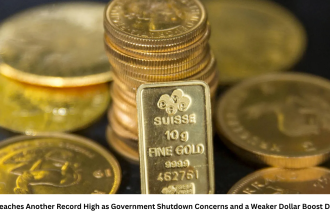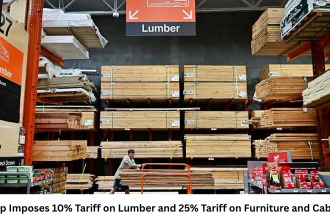YouTube has agreed to pay $24.5 million to settle a lawsuit related to the suspension of former U.S. President Donald Trump’s account. The legal dispute arose after YouTube, along with several other social media platforms, suspended Trump’s account following the January 6, 2021, attack on the U.S. Capitol. The case sparked national debate over free speech, political influence, and the responsibilities of major technology companies in moderating online content.
- Background of the Suspension
- The Lawsuit Against YouTube
- Details of the Settlement
- Statements from Both Sides
- Public Reaction and Political Debate
- Legal and Constitutional Questions
- Impact on Social Media Regulation
- YouTube’s Policy and Future Changes
- The Broader Technology Industry’s Response
- The Role of Social Media in Politics
- Public Opinion and Free Speech Concerns
- Economic Implications of the Settlement
- Implications for Future Political Figures
- Global Impact
- Ethical and Social Considerations
- Looking Ahead: The Future of Free Speech Online
- Frequently Asked Questions
- Conclusion
The settlement marks a major moment in the ongoing conversation about the balance between freedom of expression and the need to prevent the spread of violence or misinformation on digital platforms. It also raises new questions about how large tech companies make decisions regarding the accounts of influential public figures.
This article explores the background of the lawsuit, what led to the settlement, its possible legal and political effects, and what it could mean for the future of social media regulation.
Background of the Suspension
After the events of January 6, 2021, when a violent crowd stormed the U.S. Capitol, social media platforms faced mounting pressure to take action against users who were accused of inciting or spreading violence. Donald Trump’s accounts on Twitter, Facebook, and YouTube were all suspended or banned shortly after the incident.
YouTube, owned by Google’s parent company Alphabet, announced that Trump’s channel had violated its policies on incitement of violence. The suspension was initially described as temporary but later became indefinite. The move sparked controversy among Trump’s supporters, who argued that the decision was politically motivated and violated the principle of free speech.
In the months that followed, Trump and several of his allies filed lawsuits against major tech platforms, including YouTube, claiming that the bans amounted to censorship.
The Lawsuit Against YouTube
The lawsuit was filed by Trump’s legal team, alleging that YouTube’s suspension of his account violated his rights under the First Amendment. Although the First Amendment protects against government censorship, not private company decisions, Trump’s lawyers argued that YouTube acted under government pressure and should therefore be considered responsible under constitutional law.
The complaint stated that YouTube’s decision silenced a major political voice at a critical time, preventing the public from hearing from a sitting president. It also claimed that YouTube’s actions were discriminatory and politically biased, as similar content from other figures remained online.
YouTube’s defense rested on its right as a private platform to enforce its community guidelines. The company stated that all users, regardless of political position, are subject to the same policies designed to prevent harm and promote safety on the platform.
Details of the Settlement
After lengthy legal proceedings and multiple hearings, YouTube agreed to pay $24.5 million to settle the case. The settlement does not include an admission of wrongdoing by the company but aims to bring an end to ongoing litigation and public controversy.
The financial settlement will reportedly cover legal fees and damages related to the lawsuit. It also includes provisions for transparency in YouTube’s future policy enforcement, particularly concerning public figures and political accounts.
Legal experts say that while the settlement amount is significant, it represents a strategic decision by YouTube to avoid a prolonged court battle that could further damage its reputation or reveal internal decision-making processes.
Statements from Both Sides
Following the announcement, representatives from YouTube stated that the settlement was intended to move forward and focus on improving community safety and content fairness. The company reiterated its commitment to enforcing rules consistently across all users.
Trump’s team, on the other hand, described the settlement as a step toward holding technology companies accountable for what they call “unjustified censorship.” They emphasized that the case highlighted the need for greater transparency and legal clarity regarding social media platforms’ power to restrict public voices.
Observers note that both sides are presenting the outcome as a partial victory — YouTube for maintaining its right to regulate its platform, and Trump’s team for drawing public attention to the issue of digital censorship.
Public Reaction and Political Debate
The settlement has reignited discussions about the role of social media in politics. Supporters of YouTube’s decision argue that the company acted responsibly to prevent potential harm and ensure public safety. Critics, however, claim that tech giants have too much influence over public communication and can silence political opponents without accountability.
Some lawmakers have renewed calls for reforms that would limit the power of major technology firms. Proposals include revising Section 230 of the Communications Decency Act, which protects online platforms from legal liability for user-generated content while allowing them to moderate as they see fit.
The debate also extends beyond the U.S., as other countries face similar questions about how to balance free speech with digital responsibility.
Legal and Constitutional Questions
The case raises complex legal questions about whether private technology companies can be considered public forums for speech. Courts in the U.S. have generally ruled that private companies are not bound by the First Amendment, meaning they can set and enforce their own content rules.
However, Trump’s lawyers argued that YouTube’s close relationship with government agencies, especially during times of national crisis, effectively made it a government actor. This claim was controversial and difficult to prove in court, but it did highlight a growing concern about the influence of large tech companies in shaping political discourse.
Legal experts say that while the settlement does not set a binding precedent, it could influence how future cases involving political figures and digital platforms are handled.
Impact on Social Media Regulation
The YouTube settlement may have a ripple effect across the technology industry. Platforms like Facebook, X (formerly Twitter), and TikTok are watching closely to see whether they could face similar lawsuits in the future.
The case underscores the need for clearer rules on when and how social media companies can suspend or ban accounts, especially those belonging to public officials. Lawmakers are expected to revisit existing legislation to ensure greater transparency in moderation practices.
Some experts suggest the creation of an independent oversight board or regulatory body to monitor major platforms’ content moderation policies. Such an institution could help ensure fairness and accountability while protecting both free speech and user safety.
YouTube’s Policy and Future Changes
YouTube has announced plans to review its policies in light of the case. Company representatives say they will enhance communication with users about why specific actions, such as suspensions or removals, are taken.
In addition, YouTube aims to provide clearer explanations for enforcement decisions and create more consistent appeal mechanisms for creators and public figures. The company also intends to invest in artificial intelligence systems that can detect policy violations while minimizing human bias.
These steps are part of YouTube’s broader effort to rebuild trust among users and reduce accusations of political favoritism.
The Broader Technology Industry’s Response
Other tech companies have responded cautiously to the settlement. Some have expressed support for YouTube’s right to regulate its platform, while others have emphasized the importance of transparent and fair decision-making processes.
Industry analysts believe this case may encourage companies to be more careful when dealing with high-profile accounts, particularly those of politicians and public leaders. Balancing community safety with open communication remains a major challenge for all platforms.
The settlement also serves as a warning that decisions about banning or suspending influential users can have lasting legal and financial consequences.
The Role of Social Media in Politics
Over the past decade, social media has transformed how political leaders communicate with the public. Platforms like YouTube, Facebook, and X have become central channels for campaigning, policy announcements, and direct engagement with citizens.
However, this influence has also led to concerns about misinformation, radicalization, and foreign interference. The Trump suspension case underscores how digital spaces can shape political narratives and even influence democratic institutions.
Some analysts argue that social media platforms should be treated as utilities that serve the public interest, while others believe they should remain private businesses free to manage their operations.
The challenge lies in finding a balance between open communication and responsible moderation.
Public Opinion and Free Speech Concerns
Public opinion remains divided on whether YouTube and other platforms were justified in suspending Trump’s account. Some Americans believe it was necessary to prevent further violence and the spread of false information. Others view it as a dangerous example of corporate overreach into political speech.
Free speech advocates warn that if private companies can silence major political figures, they can also silence ordinary citizens. They call for more legal protections to prevent unfair censorship, especially in cases involving public interest.
On the other hand, supporters of YouTube’s decision argue that unrestricted speech online can lead to real-world harm and that companies have a moral responsibility to act when content incites violence or hatred.
Economic Implications of the Settlement
Although the $24.5 million settlement is relatively small compared to YouTube’s global revenues, it represents a symbolic cost for the company. Legal experts say it could open the door to other lawsuits by individuals or groups who feel they were unfairly targeted or silenced.
Investors and market analysts are monitoring whether such settlements could affect the profitability of social media companies in the long term. As regulations tighten, compliance costs and legal risks are expected to increase.
Still, YouTube remains one of the largest and most profitable online platforms in the world, with billions of active users and strong advertising revenue.
Implications for Future Political Figures
The case could influence how political leaders use social media in the future. Many politicians now rely on platforms like YouTube to reach audiences directly, bypassing traditional media channels.
After this settlement, political figures may be more cautious about their online statements and may explore alternative platforms that promote minimal moderation. At the same time, tech companies will likely create clearer guidelines for handling accounts belonging to elected officials.
Transparency, consistency, and fairness will become key factors in maintaining trust between public figures and digital platforms.
Global Impact
The YouTube settlement has drawn attention from around the world, especially in countries facing similar debates about online speech and political influence. Governments in Europe, Asia, and Latin America are watching closely as they develop their own digital governance laws.
The European Union’s new Digital Services Act, for example, already requires large platforms to explain moderation decisions more transparently. The U.S. settlement could inspire similar regulatory measures elsewhere, pushing tech companies toward greater accountability globally.
Ethical and Social Considerations
Beyond law and politics, the case raises ethical questions about the responsibility of technology companies in shaping public discourse. Should corporations have the power to silence a political leader, even if they believe it is in the public interest?
These questions are not easy to answer. On one hand, social media platforms must protect users from harm. On the other, they must avoid becoming gatekeepers of political communication.
Many ethicists suggest that decisions involving public figures should be made through independent panels that include legal experts, civil society members, and representatives of diverse communities.
Looking Ahead: The Future of Free Speech Online
The settlement marks the beginning of a new chapter in the ongoing struggle to define free speech in the digital age. As technology continues to evolve, so will the challenges of regulating online behavior and protecting open dialogue.
Lawmakers are expected to introduce new frameworks that clarify the rights and responsibilities of both users and platforms. Transparency, fairness, and accountability will likely become central principles guiding future online governance.
For the public, the case serves as a reminder that the digital space is now an extension of real-world democracy — and that both governments and companies must act responsibly within it.
Frequently Asked Questions
What was the lawsuit against YouTube about?
The lawsuit claimed that YouTube’s suspension of Donald Trump’s account violated his rights and unfairly censored his political speech after the Capitol riots.
How much did YouTube agree to pay in the settlement?
YouTube agreed to pay $24.5 million to settle the lawsuit without admitting any wrongdoing.
Why was Trump’s account suspended in the first place?
YouTube suspended Trump’s account for violating policies related to incitement of violence following the January 6, 2021, events at the U.S. Capitol.
Did YouTube admit fault in the settlement?
No, YouTube did not admit any fault or wrongdoing as part of the settlement. The payment was made to resolve the dispute and avoid further litigation.
How will this affect other social media platforms?
The settlement could influence how platforms handle suspensions and political speech, encouraging clearer rules and more transparency.
Will Trump’s YouTube account be restored?
As of now, the settlement does not include an agreement to restore Trump’s account. That decision remains up to YouTube’s policy team.
What does this mean for free speech online?
The case highlights the need for balance between protecting free speech and preventing harm caused by misinformation or incitement.
Could similar lawsuits happen again?
Yes, the case may inspire other public figures or organizations to challenge suspensions or bans they believe are politically motivated.
What role does Section 230 play in this issue?
Section 230 protects platforms from liability for user-generated content but allows them to moderate it. Some lawmakers want to reform it in light of cases like this.
How might this affect future elections?
The settlement may encourage platforms to establish clearer, more consistent rules for political accounts to prevent controversy during future elections.
Conclusion
YouTube’s decision to pay $24.5 million to settle the lawsuit over Donald Trump’s account suspension closes one chapter in a long debate about free speech, responsibility, and power in the digital world. While the settlement avoids a lengthy legal battle, it leaves open important questions about how far private companies should go in moderating political speech.
The case illustrates the growing tension between freedom of expression and the duty to protect public safety in online spaces. It also highlights the need for clearer, fairer, and more transparent rules that govern how platforms handle the voices of influential figures.
As social media continues to shape politics and society, the lessons from this case will likely influence not just future legal decisions but also how billions of users engage online every day.


